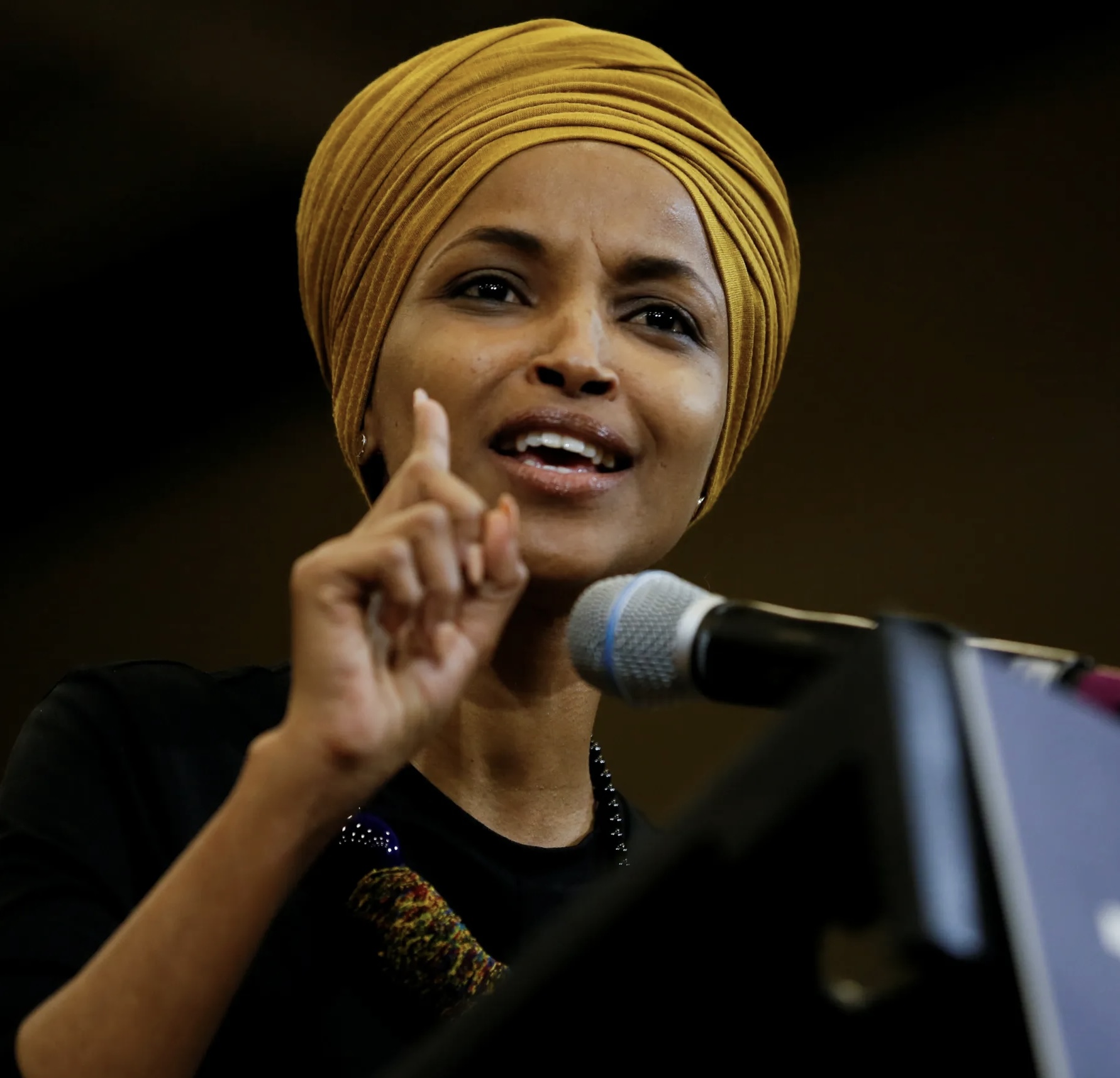Ilhan Omar Stirs Controversy with Remarks on Voter Intelligence Following Trump’s Re-Election
In a recent interview with former MSNBC host Mehdi Hasan, Representative Ilhan Omar (D-MN) sparked significant controversy with remarks about the state of American political discourse. Omar, while discussing the aftermath of the 2024 election, expressed frustration over the quality of debate in Congress and among voters. She suggested that President Donald Trump’s unexpected re-election was, in part, due to what she saw as growing “stupidity” in the political landscape.
Her comments were pointed, saying, “These people are just idiots,” as she criticized the decline in what she perceives as intellectual engagement in American politics. She went on to explain that this “stupidity” was not just evident in Congress but was a pervasive issue affecting voters as well. Omar’s frustration appeared to stem from what she views as a breakdown in meaningful debate, arguing that the current political climate makes it difficult to engage in intellectual conversations with those she believes are neglecting reason and accountability. For her, the problem isn’t just political failure—it’s a broader cultural issue that impacts the quality of discourse.
Omar’s remarks were part of a wider conversation on the state of political engagement in the country. During her discussion with host Ari Melber, she described the environment in Congress as one where intellectual dialogue has become nearly impossible. The frustration in her tone underscored a deeper concern: the degradation of civil debate in American politics and its potential consequences for democratic processes.
As expected, Omar’s comments sparked a polarized response. Supporters of the representative argue that her blunt language accurately reflects the frustrations many Americans feel toward a political system that often seems out of touch with the needs of ordinary citizens. To them, Omar’s critique is a call to address the rising tide of ignorance in political discourse and a plea for a return to thoughtful debate.
On the other hand, conservatives quickly condemned her remarks, accusing her of undermining the very ideals of democracy by labeling those with opposing views as “idiots.” Prominent conservative voices like Matt Walsh took to social media, expressing disdain for Omar’s characterization of American voters and political figures. Walsh and others criticized her comments, and in some cases, attacked her personally. These reactions underscored the deep divisions in American politics and the challenges of finding common ground when even basic conversations seem to devolve into hostile exchanges.
Omar’s words also reignited long-standing controversies surrounding her, including unfounded claims about her personal life and immigration history. Despite dismissing these allegations as politically motivated, her critics used the opportunity to bring them back into the public conversation. Some argue that Omar’s harsh language and controversial positions alienate potential allies and contribute to the ongoing environment of division in American politics. These critics contend that if the goal is to foster productive dialogue, her choice of words might do more harm than good.
At the heart of this debate is a more fundamental question about the nature of political discourse in the United States. Are Omar’s remarks a candid and necessary critique of a political system that has lost its intellectual rigor, or do they oversimplify the complexities of a deeply divided nation? Critics of her statement suggest that such sweeping generalizations only add to the polarization, while supporters believe that her words reflect the frustration of many Americans who are tired of watching political debates devolve into soundbites and partisan attacks.
Omar’s comments also raise important questions about the role of media in shaping public perception. The controversy surrounding her interview quickly became a national talking point, with social media platforms amplifying every aspect of the conversation. In an era where words are dissected and often taken out of context, the media’s role in framing such debates is crucial. For some, Omar’s remarks were a rallying cry for a return to serious political engagement, while for others, they were a symbol of everything that is wrong with modern American politics.
In the end, the controversy over Omar’s statements invites a broader discussion about how we can restore intellectual engagement and civil discourse in American politics. As the country becomes more divided, the ability to engage in respectful, thoughtful debate has never been more important. The challenges we face as a nation are complex, and finding solutions will require more than just calling out perceived ignorance—it will require an effort to understand differing perspectives and work toward common ground.
Omar’s comments, whether you agree with her or not, underscore the pressing need for change in how we conduct political conversations. In a time when every comment can spark a national debate, it’s more important than ever that we strive to engage in conversations that are informed, respectful, and aimed at building a more inclusive and thoughtful political dialogue.
